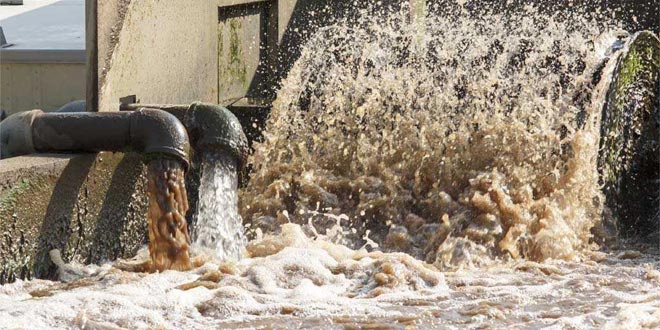New Delhi: National Mission for Clean Ganga (NMCG) Director General Rajiv Ranjan Mishra has highlighted an immediate need to frame a comprehensive central policy document for river basin management and treated wastewater reuse. He made the comments during a roundtable discussion on ‘Treated Wastewater Reuse Policies and Approaches in India and the European Union-A Comparative Assessment’ organised by NMCG, India-EU Water Partnership and GIZ on Tuesday.
One of the major objectives of NMCG is ‘aviral dhara’, that is maintaining uninterrupted flow in Ganga through a number of measures like improved water use efficiency, promotion of reuse of treated wastewater and demand side management, Mr. Mishra said in his inaugural speech.
He urged all the participants to have an open and interactive discussion to make the roundtable successful in paving the road for a national level policy.
The roundtable was attended by several stakeholders ranging from academics, ULBs, Industries and infrastructure developers. The roundtable was part of the India-EU Water Partnership (IEWP) being implemented by GIZ in cooperation with the Ministry of Jal Shakti.
UP Singh, Secretary, Department of Water Resources, River Development and Ganga Rejuvenation, Ministry of Jal Shakti, G Asok Kumar, Mission Director, National Water Mission, Ministry of Jal Shakti and Rozy Aggarwal, Executive Director (Finance), DP Mathuria, Executive Director (Technical) and other senior officials from NMCG were present at the roundtable, besides Mr. Mishra.
At the outset, Martina Burkard from GIZ welcomed the participants and provided a brief of the IEWP and ‘Support to Ganga Rejuvenation’ project. She stressed upon the need to deploy holistic river basin management approach and EU practices on treated wastewater reuse.
In his inaugural address, Mr. Singh reiterated the emerging water scarcity issues partially driven by erratic climate events. While he highlighted various successful case studies coming from across the country on reuse of treated wastewater, he emphasised that this is the most appropriate time to frame a national level policy to institutionalise these efforts.
Furthermore, Mr. Singh opined that effective reuse of treated wastewater at micro or local levels could be a promising strategy to mitigate such challenges. He cautioned that quality aspects of treated wastewater should be ensured as per designated end-use.
Guido Schmidt, Consultant, IEWP/GIZ, presented the comparative assessment of various elements of wastewater reuse polices from the EU, Spain, and states of Gujarat and Haryana.
The study reviews these policies in view of various elements like designated end-use, quality norms, the objectives, associated risks, financial and implementation aspects. At the closure of the event, it was the unanimous view that a national level comprehensive policy needs to be framed at the earliest to ease the pressure on freshwater resources by reusing treated wastewater.
NDTV – Dettol Banega Swachh India campaign lends support to the Government of India’s Swachh Bharat Mission (SBM). Helmed by Campaign Ambassador Amitabh Bachchan, the campaign aims to spread awareness about hygiene and sanitation, the importance of building toilets and making India open defecation free (ODF) by October 2019, a target set by Prime Minister Narendra Modi, when he launched Swachh Bharat Abhiyan in 2014. Over the years, the campaign has widened its scope to cover issues like air pollution, waste management, plastic ban, manual scavenging and menstrual hygiene. The campaign has also focused extensively on marine pollution, clean Ganga Project and rejuvenation of Yamuna, two of India’s major river bodies.
























